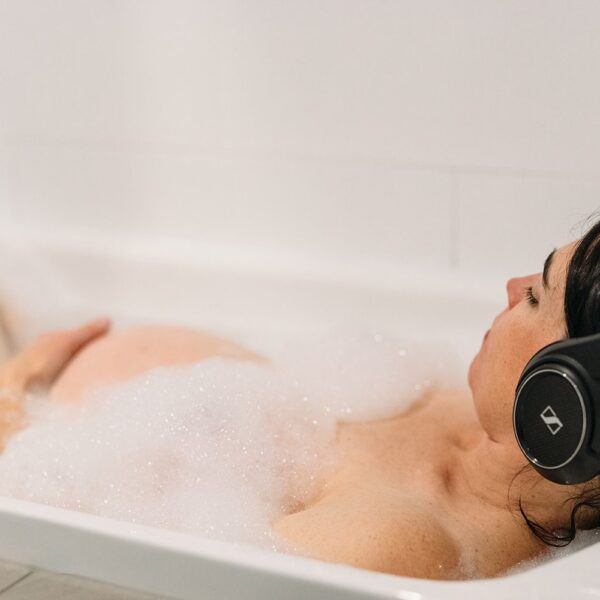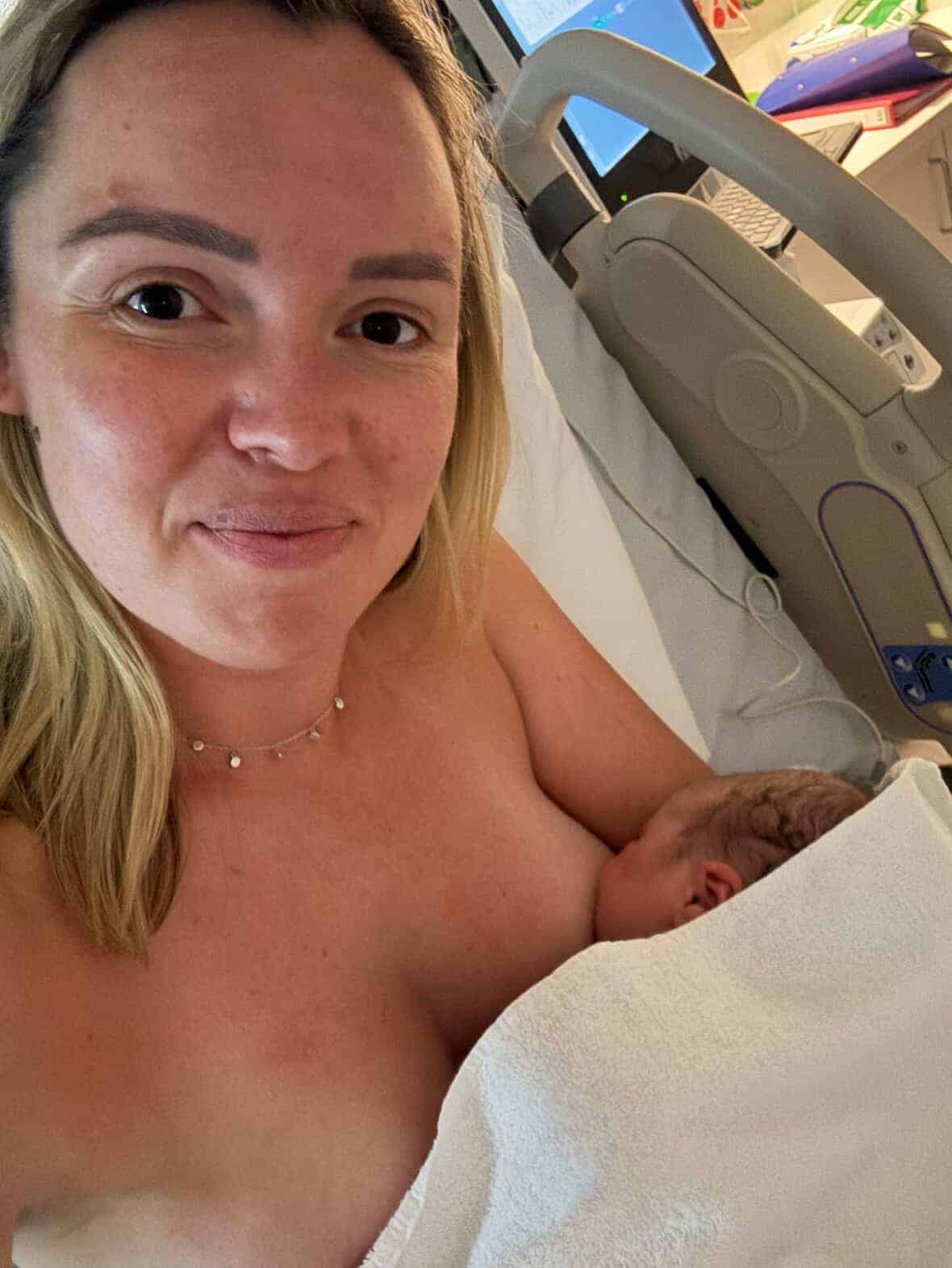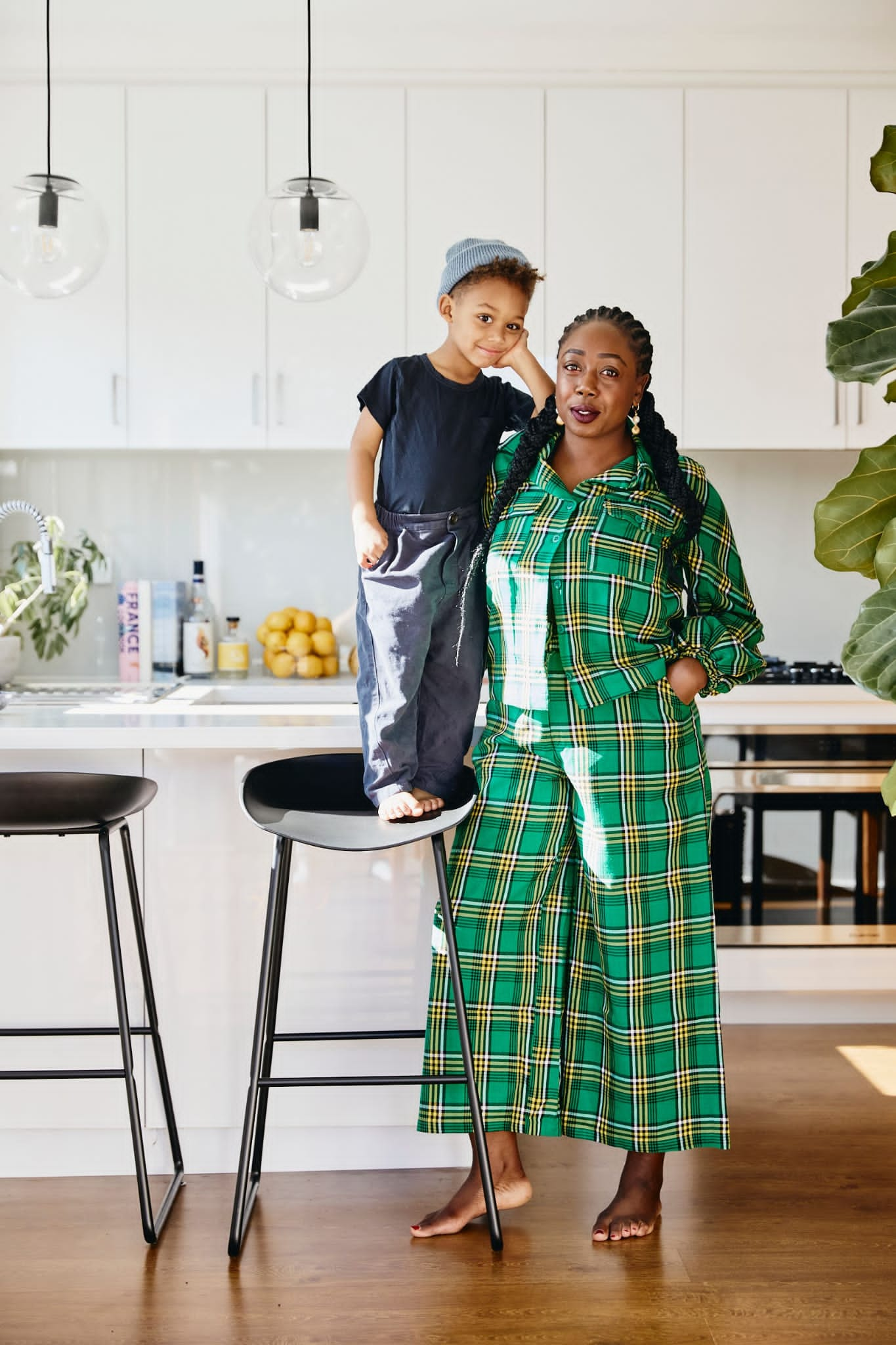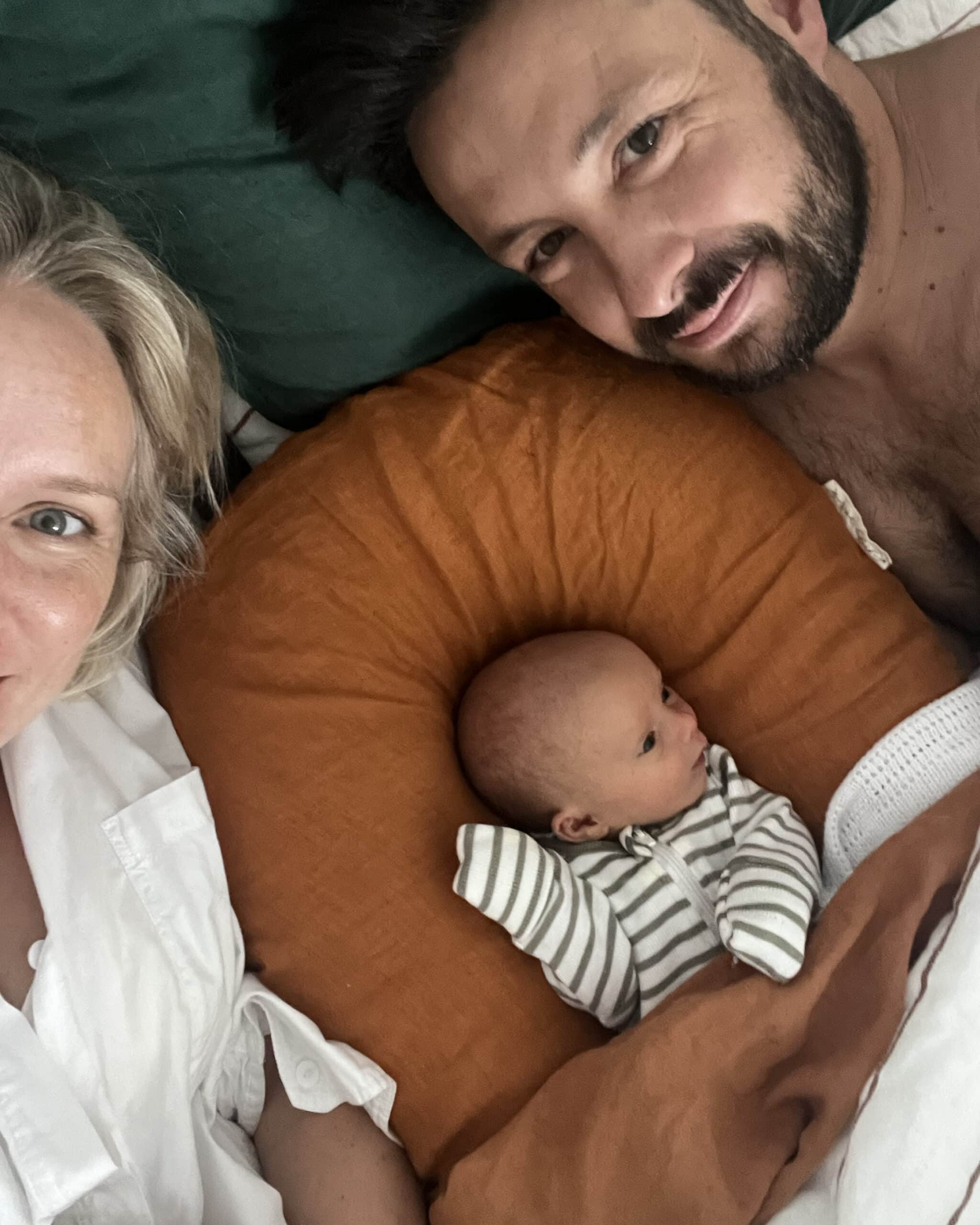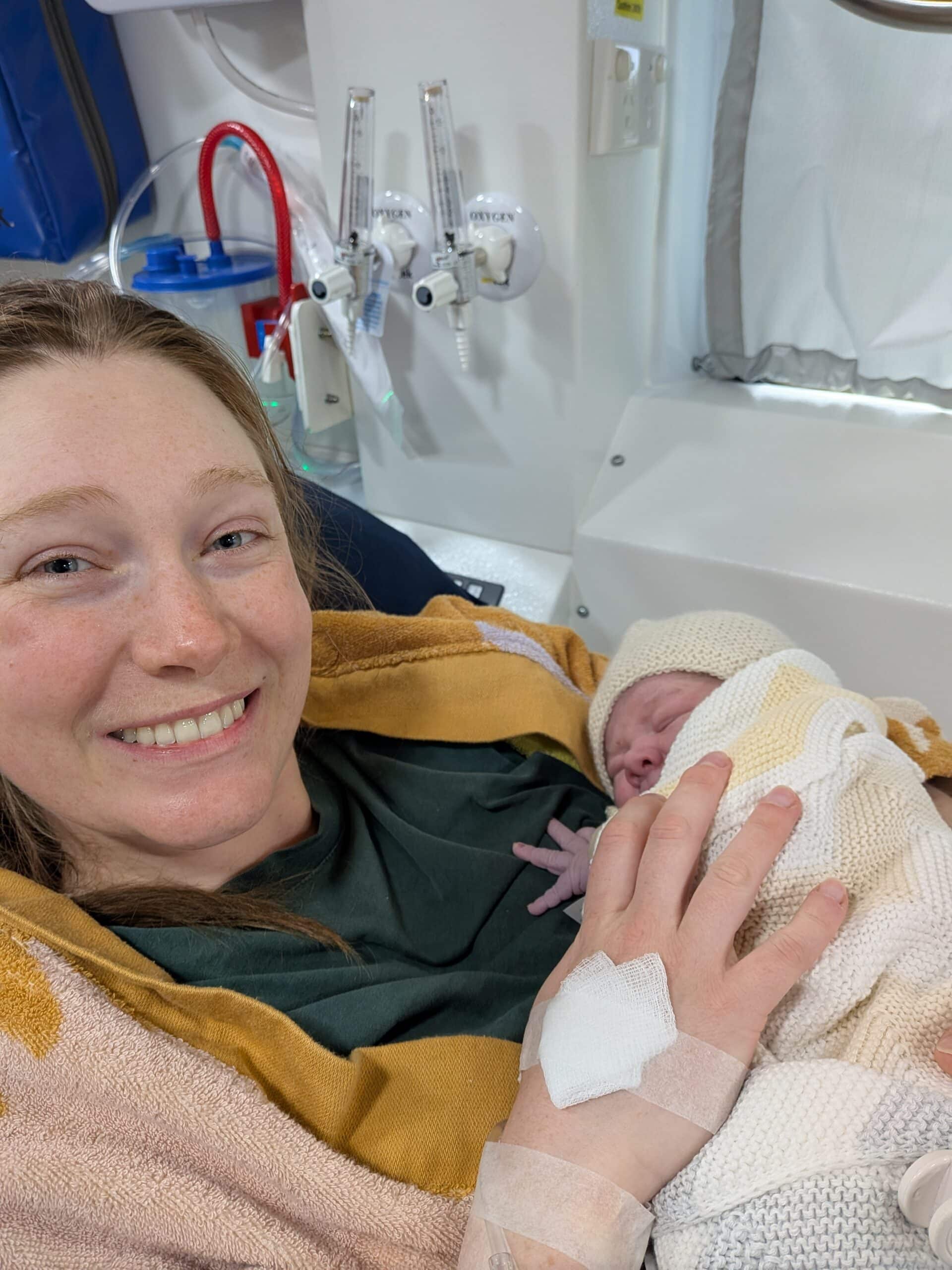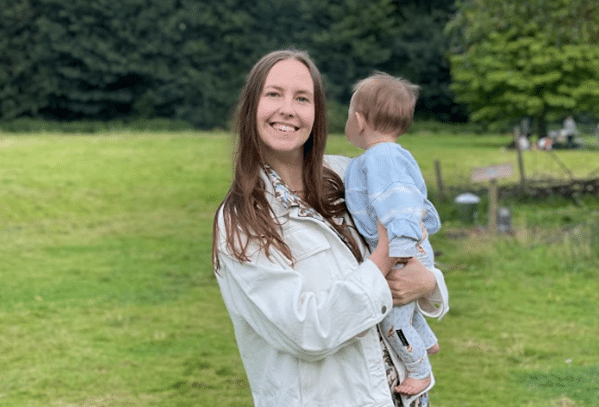Podcasts Jessie Stephens – private obstetrician, epidural, anxiety and depression
EPISODE 415
Jessie Stephens – private obstetrician, epidural, anxiety and depression
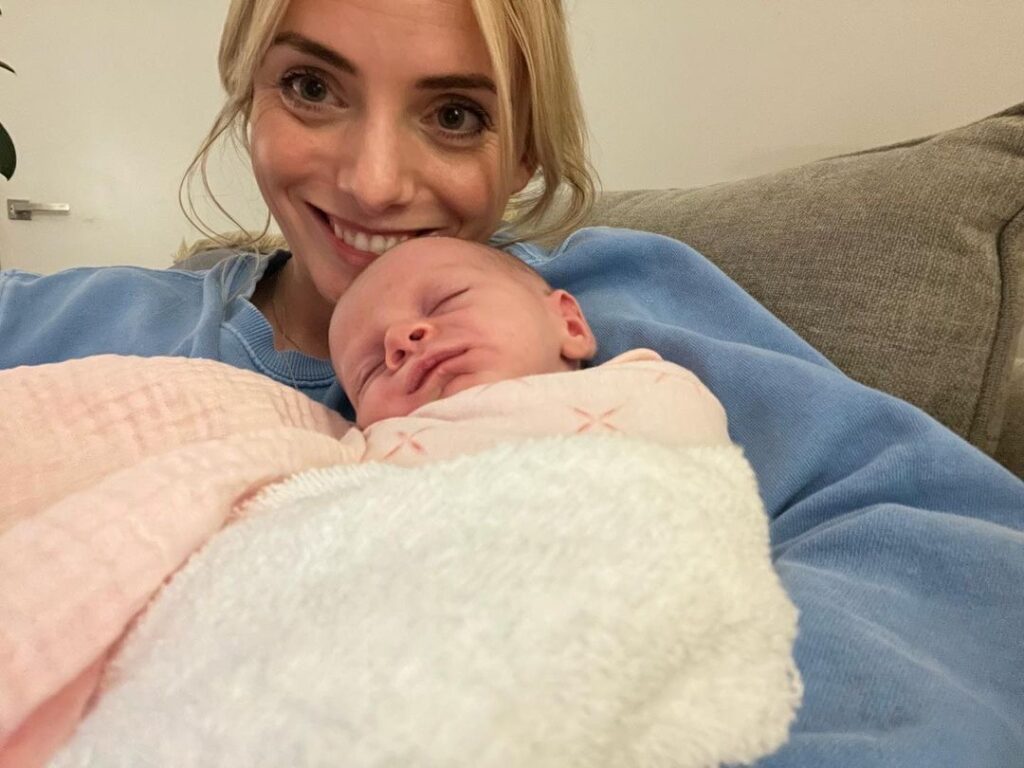
“I knew I wanted children. I’m a bit older than my partner, we were engaged but we had a bit of a plan for the next few years. I fell pregnant accidentally and I’ve had painful, irregular periods for most of my life so I expected to struggle getting pregnant; it was a real shock that it happened by accident. When it happened, I remember that night thinking….hmm, I wonder. What was weird was that I had spotting but it was the first period in my life where I had no pain. A couple of weeks later my fiance reached over to get the remote and grazed my boobs and I yelped because they were so sore and I thought: that’s new. I bought a pregnancy test and it was positive. Shock was definitely the primary emotion and I always imagined elation would be the primary thing and it wasn’t; it was fear, apprehension, how is my partner going to feel, calculating the next nine months…and I probably grieved that for the rest of the pregnancy, that it wasn’t what I’d planned.
“I thought I could put conception in my life calendar but the fact that I couldn’t was probably a brilliant life lesson. I also always imagined that my twin sister would have a baby first so it was weird to be the one going first without a blueprint. It was scary. I told her before I told my fiance. She said she knew I was pregnant and her primary emotion was excitement from the beginning.
“I was terrified it was going to be twins, just because I thought that would be really hard. My mum had two sets of twins under two-and-a-half and everyone always used to ask how she did it. Luckily for us it was just the one, so slightly less intense.
“I knew my mental health medication was pregnancy safe and when I went to the doctor they recommended I stay on the medication which was a relief. I had enormous anxiety in the first trimester and then I started wondering how I would be in postpartum. At the start of my second trimester I was elated – I had weeks of exercising and being happy and everything seemed right – and then there was an enormous dip where I got incredibly depressed. I spoke to a psychiatrist and he said that often women between 25-30 weeks need to increase their mental health medication because of their blood volume. In retrospect I wish I’d done that sooner but once the medication was increased it really helped.
“I flagged my history of anxiety and depression with my obstetrician and he encouraged me to book appointments with my psychologist and I’m really glad I did. I was having enormous fear about birth, I was obsessed with making the right decision, and then I was also terrified that I would hate being a mother and I was convinced that my life would be over and I would lose my identity and I really spiralled. The anxiety and the worry got so out of hand that I went into a state of numbness; I was disconnected, like all the lights went out. Increasing my medication and getting an iron infusion made me feel like a new person. When I look back, there was a fog throughout pregnancy that didn’t lift until the baby was out. It was a relief not to be pregnant anymore.
“My mother in law recommended an obstetrician and I met with him, he was incredibly matter of fact, dealt in statistics, and he wouldn’t roll his eyes at my fears but gave me the stats and told me the course of action and that worked really well for my anxious mind. I needed to know everything; I went back and listened to all your episodes, I read books, I spoke to lots of experts for my own work and that helped my anxiety.
“The things that helped me the most were the birth classes – understanding the stages of labour and what was happening chemically. My fear was being in pain and not being able to get out of it because I knew I would panic. I opted for a vaginal birth, I did pelvic floor physiotherapy and an early epidural….but on day one, I would have said a planned caesarean.
“I have vaginismus so I thought that pregnancy would be really challenging. I went to a women’s health physio from 25 weeks and I saw her every two weeks and it just about cured my vaginismus. I did everything I was told to do and I just can’t believe the difference it made. I’d practised pushing and breathing through contractions and it meant I felt more in control. I had to learn how to release my pelvic floor.
“In the third trimester I had pregnancy insomnia (part of which were nerves about the birth) and I just wanted the pregnancy to be over. I think I overextended myself at work because I saw birth as my deadline; I regret the pace I worked and I didn’t listen to my body and I paid for it towards the end.
“I remember feeling impatient and I was very conscious of any niggles. When I was 39 weeks I got a foot massage because someone told me it helps you go into labour and sure enough, I went into labour that night. I was lying in bed and I felt this strange back pain which was different to the low-level period pain I’d had for a few weeks. I’d also had a bit of spotting. My back pain became tummy pain and it started to appear and disappear and that’s when I recognised it as a contraction. I was really excited and I think that’s because I could see the finish line.
“I managed to get some sleep and the next morning I started tracking them on an app. The TENS machine was amazing and I had it on for a full 48 hours. At midday I told the hospital I was having contractions about 10 minutes apart and the midwife encouraged me to rest and sleep in the afternoon because it would intensify in the evening. I was trying to manage the pain on my own and when I couldn’t, I knew it was hospital time.
“We went to the hospital twice. The first thing that prompted me to go was that I hadn’t felt her move for a while and she was usually quite active. The midwife checked her, she was fine, she confirmed I was in early labour and she sent me home to rest. I think it was about 24 hours later that we returned to the hospital. I felt really normal between contractions and that surprised me. I was eating and drinking and I certainly didn’t feel nauseous which was good.
“I had a vaginal examination and it was really painful and I kept flinching. I was 2 cm and I opted to use gas for four to five hours and then I had a contraction that was a bit more intense and that was when I opted for the epidural. It was really quick and from there I didn’t feel another contraction. It was the best feeling, I couldn’t believe it. I could still feel things and move my legs. My physio had talked about the benefits of an epidural because it helps the muscles relax. I couldn’t sleep, I just had adrenaline running through my body.
“They checked me every four hours and they gave me syntocinon to speed things along. About an hour or two later I said I could feel the urge to push and the midwife could see the head. I was really looking forward to the pushing; I liked that the pain was getting me to do something, it was productive, and the elation of it was one of the best experiences I’ve ever had. The pain guided me; I knew where to push down and when to stop and it was so good to have that feedback.
“It was so calm and relaxed and Luca was in shock; he thought it would be really confronting. It felt like I breathed my baby out. I pulled her from underneath her arms and up onto me. She let out a big cry and I had a fear throughout my whole pregnancy that I’d feel numb but I had so much feeling, Luca and I were just in tears.
“I’d had a birth plan and my aim was not to panic and the fact that I didn’t made me feel so proud. We had a bit of time, just the three of us. We’re both incredibly close to our families and they were all at the hospital so they came and met her after an hour. We stayed in hospital for three nights and I thought I’d love it for the food and support but I didn’t like it. I found it really hard having someone come in and ask you questions; it was really intense and we were keen to be discharged but I also wanted to establish feeding beforehand.
“She was 2.8kg and she lost a bit of weight before we left hospital which was to be expected but the lactation consultant got a bit concerned when she lost weight in week two and three. I was really enjoying breastfeeding, even the night feeds, and the hormones allowed me to sleep so my sleep was disturbed but I could actually sleep which made the world of difference to me. I was advised to pump in the morning to give her top-ups during the day and I hated it, holding two pumps to my boobs while staring at the wall felt like a punishment. It was full time, round the clock, feeding, feeding, feeding. The next week she’d put on 70 grams which wasn’t enough which was soul destroying. I felt like I’d been put on a performance plan and I was failing and I am trying so so hard. It was a bit like the sunk cost fallacy because I was invested in breastfeeding, I’d got over the sore nippled, my milk was in, I’d done the expressing and I wanted it to work but it was taking an enormous toll on me. It took her five weeks to get back to her birthweight which was quite stressful and then she put on 200 grams in a week. I think my milk took a while to come in, she’s a small baby, I’ve stopped doing all the extra expressing now. When your baby has a low birthweight you wonder if you’re not feeding them enough or if you have a starving baby and what can I do to fix it. It really undermined my confidence and this thing that I was finding quite natural became really hard andI was overthinking and I was no longer looking her in the eye and falling into it, I was wondering how many sucks she’d had and how long she’d been on and is she swallowing….it was awful. Not having to pump has made a big difference and I feel like we’ve turned a corner. And knowing she’s putting on weight, which is such a relief. I deleted all the apps that tracked feeds and I’m going on instinct and it’s a far more enjoyable experience.
“I can’t believe how much I’m enjoying it, I’m getting more sleep than I did in pregnancy but I didn’t think it was possible to love someone this much. This postpartum period has been bliss which I feel guilty saying out loud…you don’t earn yourself a good postpartum period. I think it’s important to talk about the joy, it feels like the greatest thing I’ve ever done.”
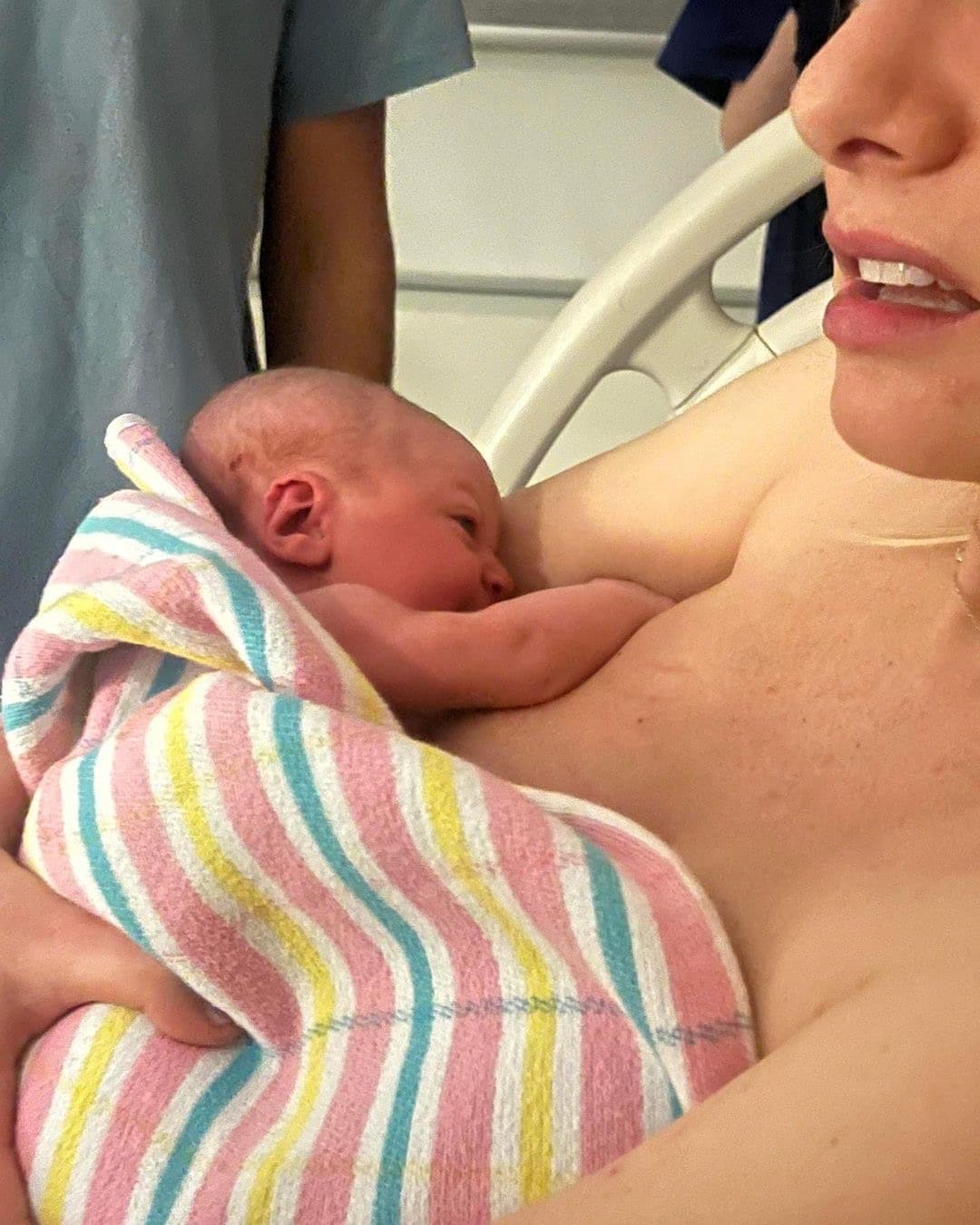
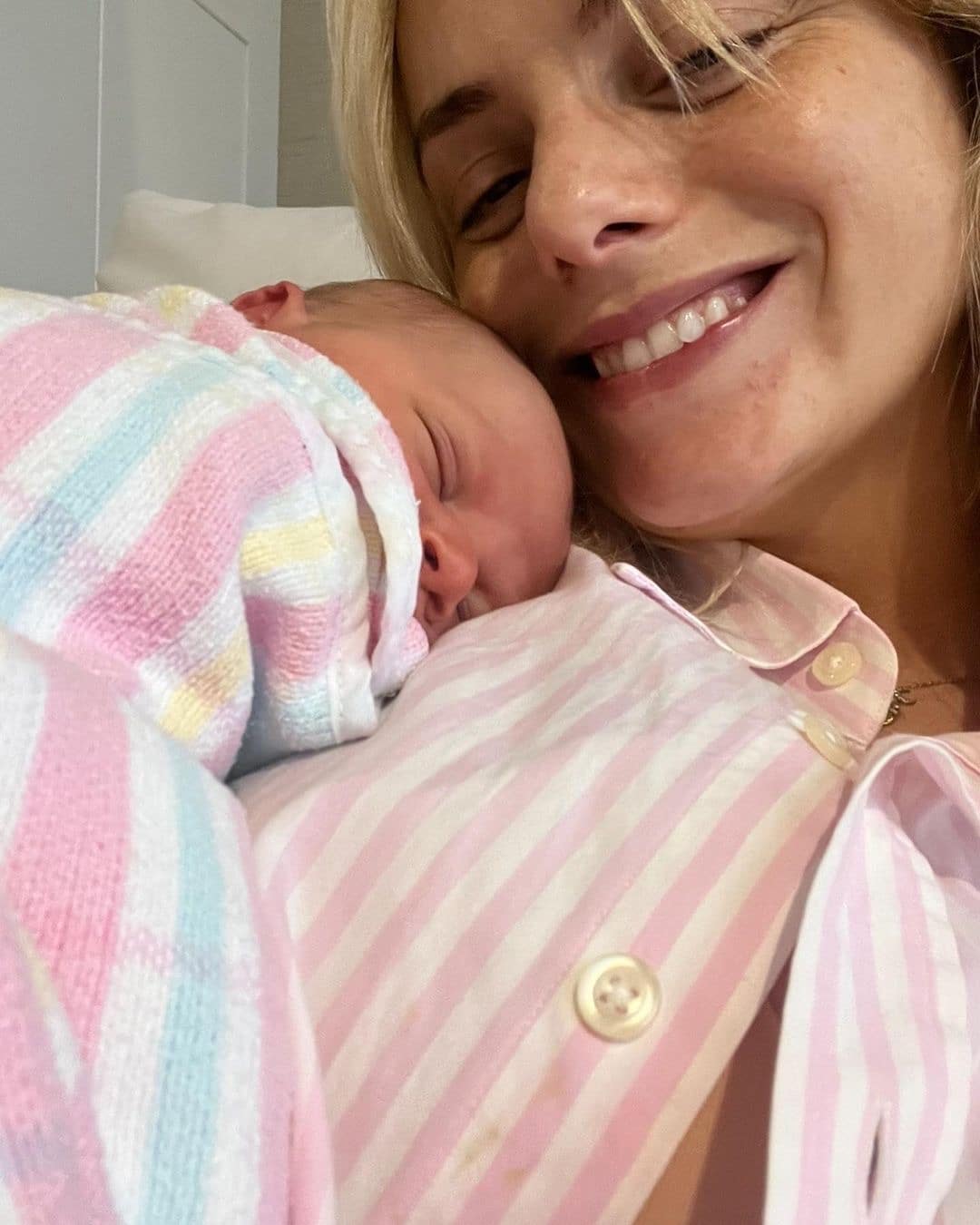
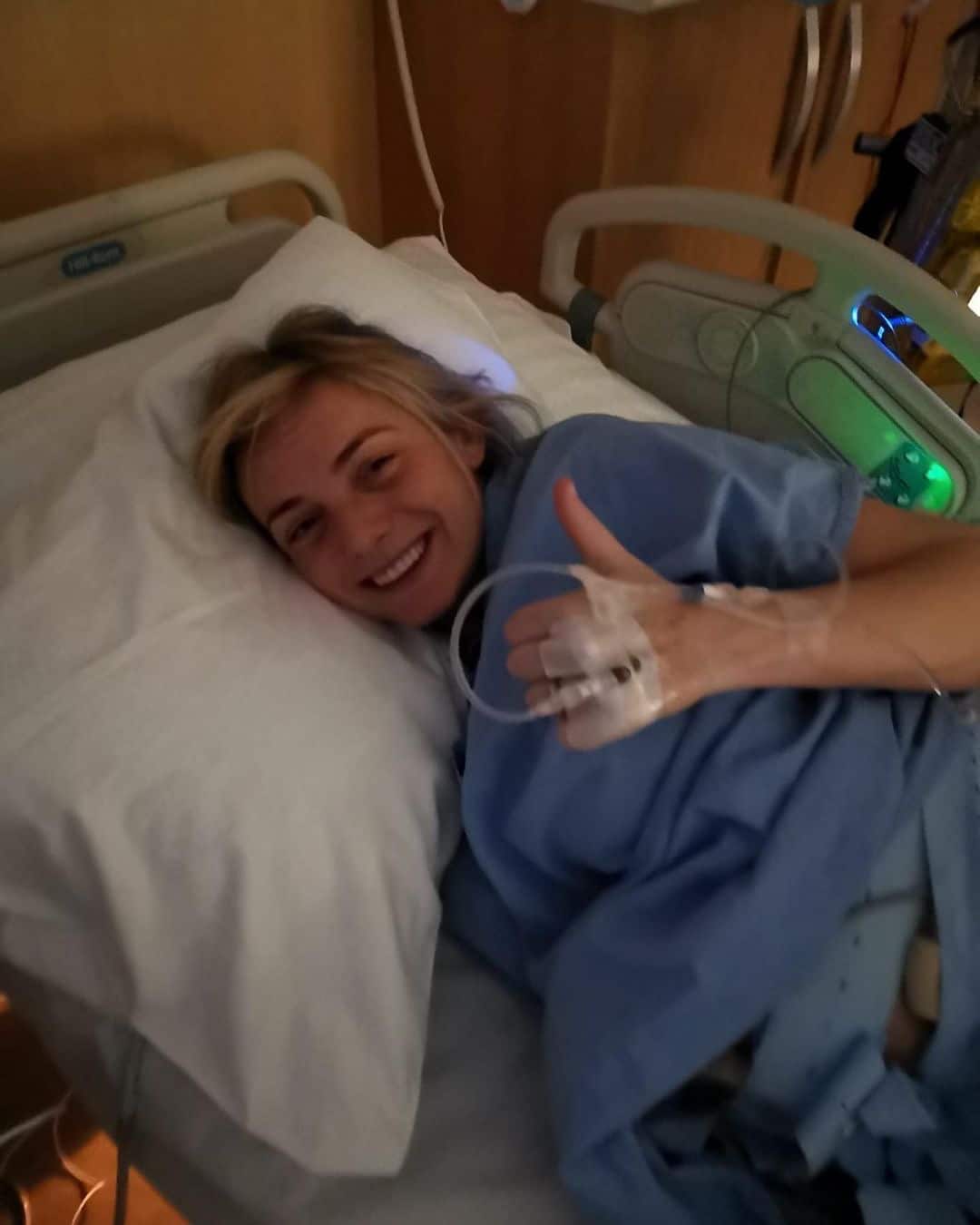
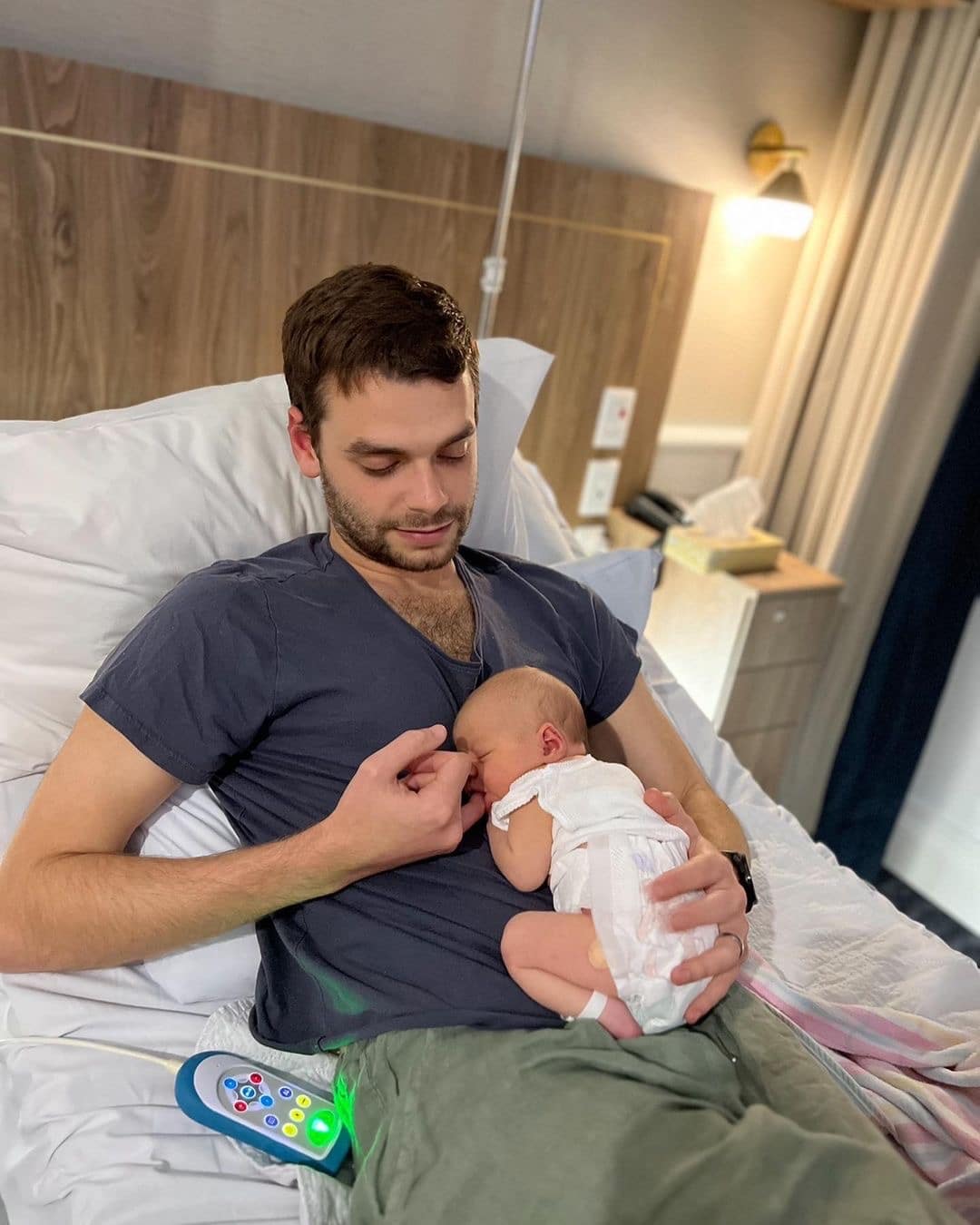
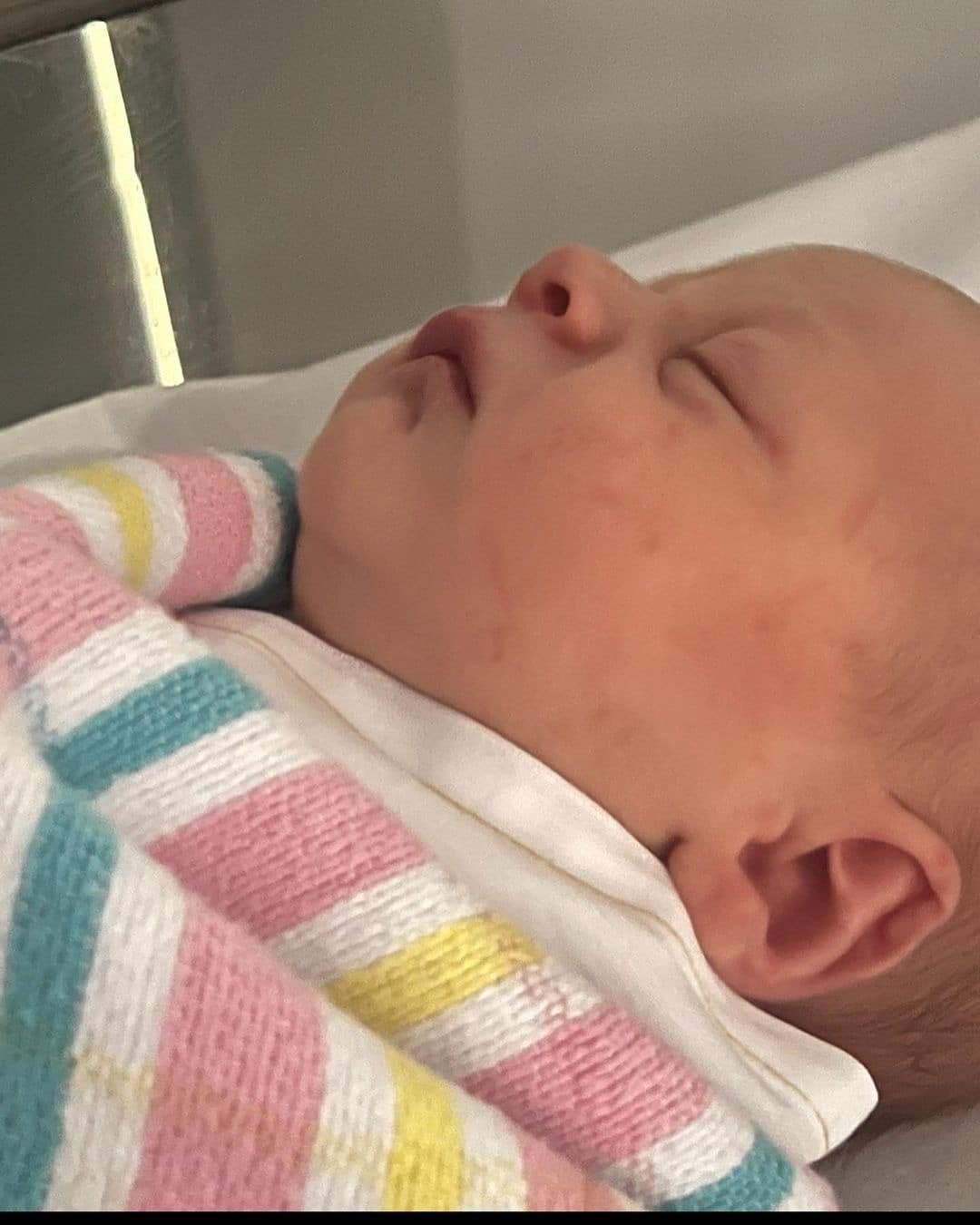
Topics Discussed
anxiety and depression, Breastfeeding challenges, Epidural, One baby, pelvic floor physiotherapist, postpartum joy, pregnancy insomnia, Private obstetrician, TENS, Vaginismus
Episode Sponsor
Every parent dreads a leaking nappy and the piles of washing that inevitably follow. That’s why BabyLove created Cosifit nappies – they’re cosy, they’re comfy and they offer superior leak protection.
Now with LeakSTOP technology, BabyLove Cosifit nappies feature a flexible contoured shape that moulds to your baby’s body for a gap free fit that prevents leaks. Less washing for you, more comfort for your baby. There’s so much to love about BabyLove Cosifit nappies. Want to try before you buy?
You can get your FREE sample of Cosifit at BabyLove nappies
Categories
Related Products
-
Birth Meditations
$49.00Narrated by Sophie Walker, these soothing and informative meditations help you feel supported and confident around birth.
Join the conversation
Sign up to get the latest updates, freebies, podcast releases straight into your inbox
@AustralianBirthStories
Follow along with us
@AustralianBirthStories
Follow along with us
@AustralianBirthStories
Follow along with us
@AustralianBirthStories
Follow along with us
@AustralianBirthStories
Follow along with us
@AustralianBirthStories
Follow along with us
@AustralianBirthStories
Follow along with us
@AustralianBirthStories
Follow along with us
@AustralianBirthStories
Follow along with us
@AustralianBirthStories
Follow along with us
@AustralianBirthStories
Follow along with us
@AustralianBirthStories
Follow along with us
